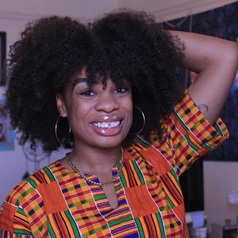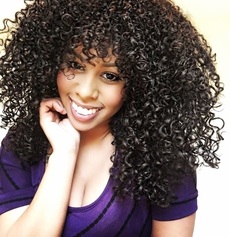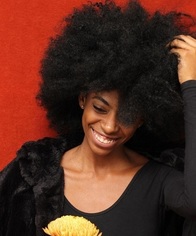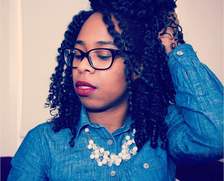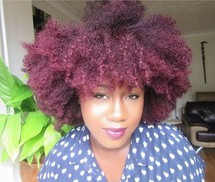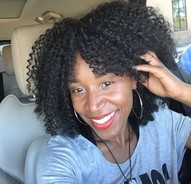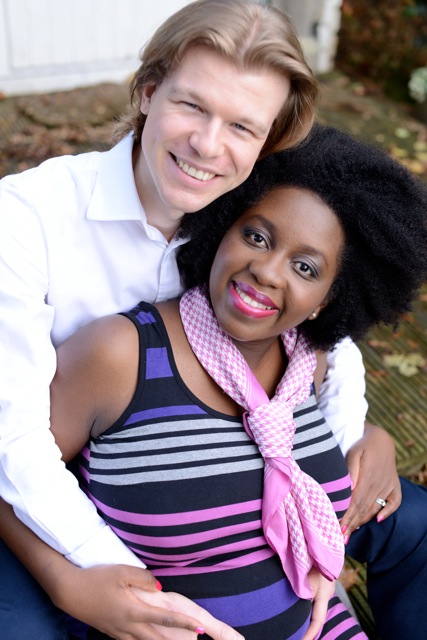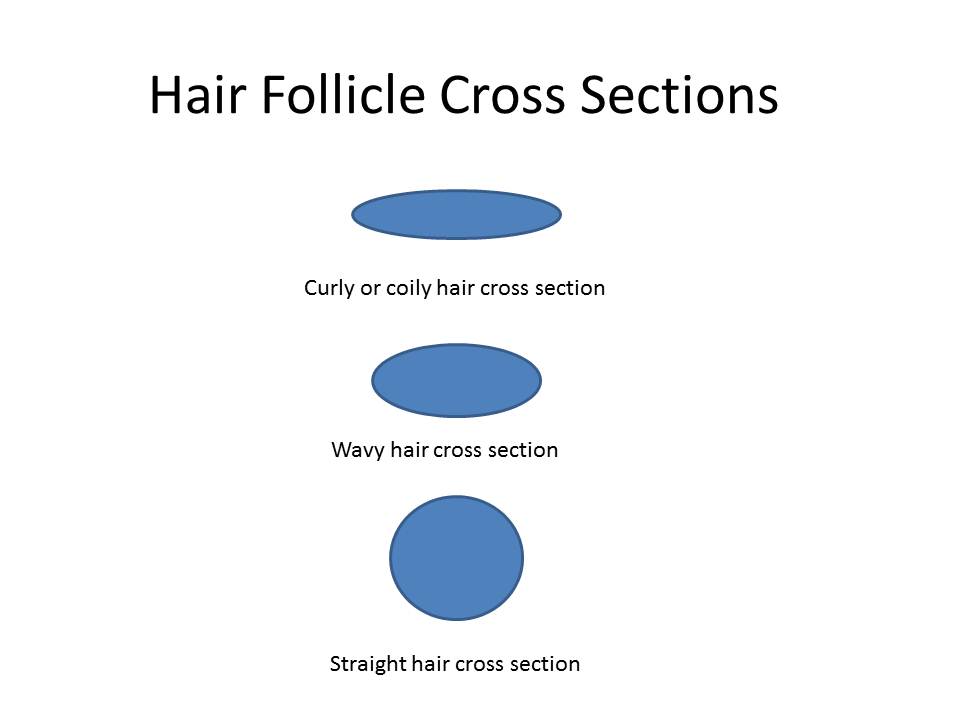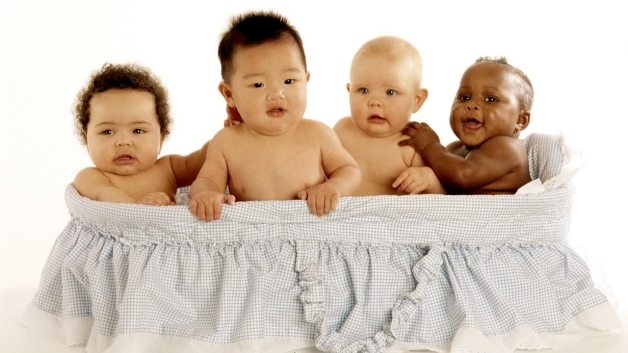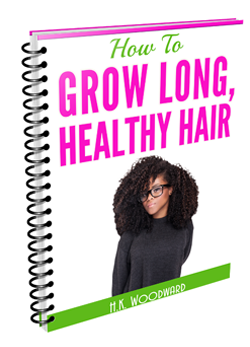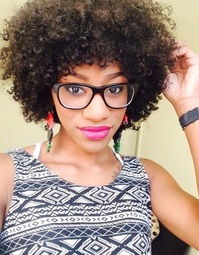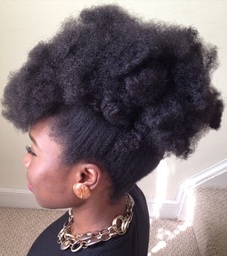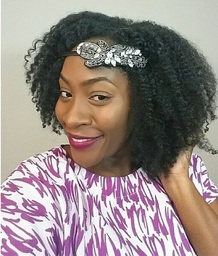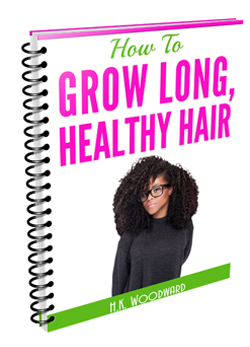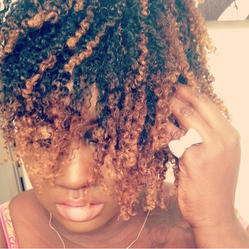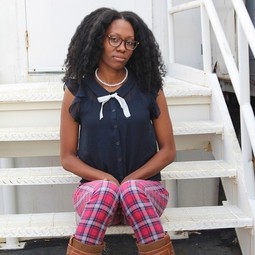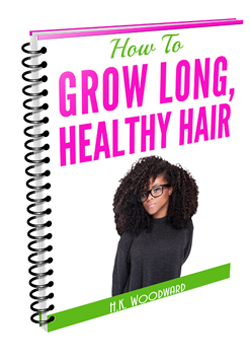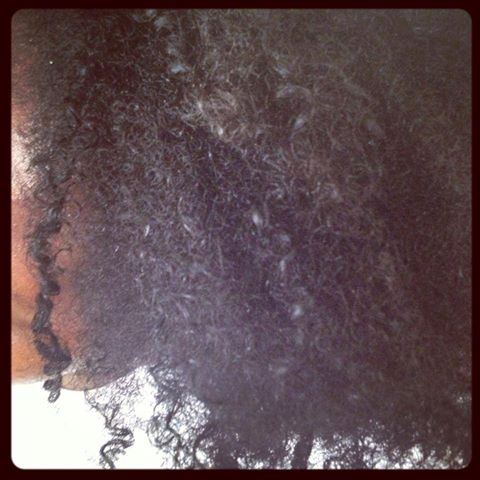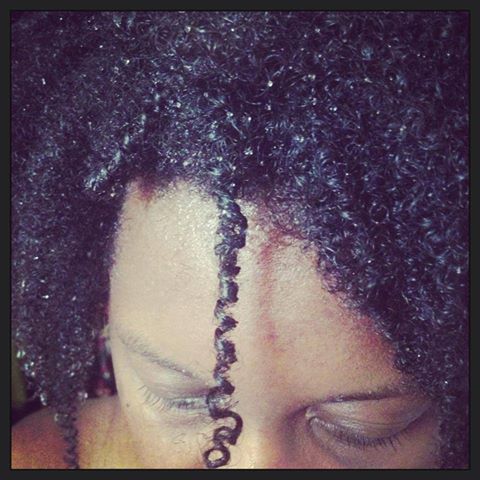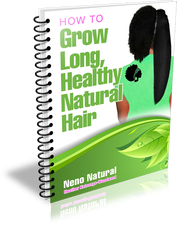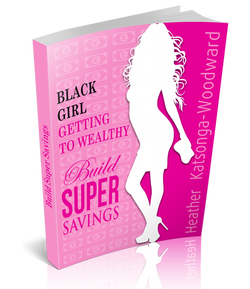|
Think you know everything there is to know about hair care? The truth is that there are some common myths floating around about how to take care of black hair. Learning what is fact and what is fiction will help you take better care of your hair.
Black Hair Care Truth 1: Hair loss does not have to happen when you wear weaves or braids. Problems with hair loss occur when your hair is pulled too tight for long periods of time. Either ask your hair care specialist to go a little looser on the scalp or alternate braids or weaves with a looser style on a regular basis. Black Hair Care Truth 2: Satin or silk does protect your hair. Friction is your hair's biggest enemy. When you sleep on a smooth satin pillow or wrap your hair in a silk scarf before you retire, you are preventing the hair breakage that occurs when friction gets hold of your head. When your hair rubs against a coarse fabric while you sleep, hair breakage accelerates. Black Hair Care Truth 3: Hair growth naturally accelerates during pregnancy. During pregnancy, a woman's body is flooded with estrogen which places hair into a permanent growth phase for the duration. Once the pregnancy ends, hair stops growing and begins to shed in copious amounts. Those prenatal vitamins don't have anything to do with hair growth although they are great for you and the baby's overall health. Black Hair Care Truth 4: Black hair is more subject to breakage. Black hair is curly and because of this, its internal structure is more subject to breakage. The tighter the curl, the drier and weaker the hair will be. That is why good hair care should be on your list of priorities. Black Hair Care Truth 5: Having long black hair is possible. Many people think that black hair simply won't grow long because of the problems with breakage listed in Truth 4. However, with proper care, black hair can grow quite long. Think about how long dreadlocks can grow for starters. Black Hair Care Truth 6: Black hair grows just as rapidly as any other type of hair. It's true. Hair grows at an average of one-half inch each month and black hair is no exception. Because of the curls, it only seems like black hair grows slower than other types of hair. Black Hair Care Truth 7: Natural hair can be easy to manage. Most black women have learned how to take care of their relaxed hair and don't quite know how to take care their natural hair. The good news is that with proper care, you can alternate your styles between relaxed and natural while always looking great. Black Hair Care Truth 8: Black hair won't dry out if it is washed more than once a week. Water is a moisturizer and the number one cause of your hair not growing comes from product build-up so it is important that you wash your hair as needed. Black Hair Care Truth 9: Greasing your scalp will actually dry out your hair. In an attempt to moisturize their hair, many women go overboard with hair care products used to grease and moisturize their scalp. The bad news is that these products can actually lock moisture out of the hair follicles. Using products designed to bring moisture into the hair itself will deliver much better results. Black Hair Care Truth 10: It is not necessary to go to the salon every week to grow your hair long. When you follow these truths, you can have great looking and long hair without the need to go to the salon every week. However, where's the fun in that? Why not take excellent care of your hair at home and let your stylist deliver even more outstanding results? These hair truths might fly in the face of what you have always been told about black hair care, but they work. Regular hair care will help you grow your locks long and lush if you wish or set you up with a perky short look. Let us know which of these truths was most illuminating to you. Charleme Salomon is a successful business owner and fashion enthusiast. She operates the website, AfricanAmericanHairStyleVideos.com, which provides helpful and up-to-date videos straight from black natural hairstyle aficionados.
1 Comment
One of the most annoying questions I was ever asked was "Why do you (i.e. black people) need to have different products anyway? Why can't everyone just use the same products?" - what was annoying wasn't the questions itself but the fact that the person didn't even let me answer. They just continued talking and every time I interjected with "Can I answer your question?" They just talked over me and ignored me. I was still annoyed about 2 months after the incident! I know, that's ridiculous - other people's stupidity should never impact one's emotions like that.
Anyhow, if you cut through the hair strand of someone with naturally straight hair you would find that the cross-section is round. Curly hair on the other hand has a flattened oval or elliptical cross section, this however is only one difference. It is the feature that gives our hair it's very curly shape. In addition, African/African-American hair:
The fewer the number of layer the more chemicals can be used to change the hair - so a person with a 7-layer cuticle will take chemicals more easily than a person with an 11-layer cuticle; remember those people who complain that their hair just doesn't take relaxer? They probably have a thicker cuticle layer. That said, flatter (elliptical) hair strands are easier to treat with chemicals so black hair may ultimately be easier to chemically manipulate. In summary, besides the curl that you see, different hair types have varied structural and chemical features that impact how products work with the hair. This is why different hair types needs slightly different products.
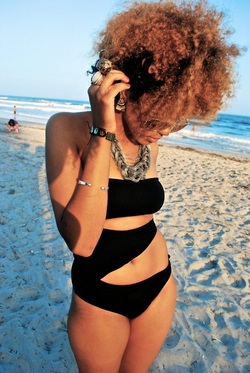
Humectants or hygroscopic substances or hydrophilic substances attract and retain moisture from the air. They are often used in hair products to keep hair moisturised.
Humectants include:
Glycerine is a particularly strong humectant; when the weather is very dry such that there isn't enough water in the general environment, glycerin can compensate for this by actually taking much needed moisture out of your hair and therefore drying it out! I have failed to find any reference suggesting that other humectants dry hair out if the hair is the only source of moisture. That said, if it is very dry outside in winter or summer I would use humectants much more sparingly! Overall, I am going to deduce that this feature of drying hair out may be unique to glycerine because if you left a jar of honey open, it would not become dilute where as a key characteristic of glycerine is that if left in an open unsealed jar or container it would continue too attract water molecules until it contained 20% water! That said, note that different types of hair respond differently to the application of humectants. Read the following chain on longhaircommunity.com for other opinons:
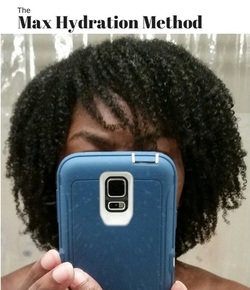
I don’t normally accept guest posts, in fact, this is the very first guest post ever on this hair blog in over two years of writing.
Guest post from Allison Matthews, edited by Heather Katsonga-Woodward. The Max Hydration Method (MHM for short) is, according to maxhydrationmethod.com, “a 5 step regimen that systematically increases moisture levels in the hair until Max Hydration is reached.” This method, championed by Black Hair Media Forum VIP Member PinkeCube promises to turn the notion that wash and go’s don’t work on type 4 hair on its head. In addition to forum posts, and social media accounts dedicated to the Max Hydration Method, PinkeCube has launched a blog where everything about the method can be found — maxhydrationmethod.com. So what exactly is the Max Hydration Method, how does it work, and are the results for real? Let’s explore: Who is the Max Hydration Method for? The Max Hydration Method is articulated as being designed for type 4 hair, specifically low porosity 4c natural hair. What does it do? PinkeCube, MissDeeKay, and other proponents state that the Max Hydration Method will transform dry, frizzy, undefined hair into coils and curls that clump — with or without product. Additionally, they claim that once your hair reaches max hydration, many of the issues that plague type 4 hair (dryness, styling, knots, length retention) will cease to occur. 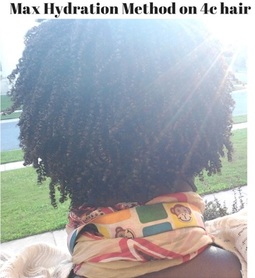
What products are required, and how long does it take?
The Max Hydration Method initial period lasts for 7 consecutive days. You can stretch your re-wetting/styling to every 2-3 days, but daily is recommended for best results. As far as products are concerned, you’ll need:
How do you do the Max Hydration Method?
As mentioned previously, the Max Hydration Method is aimed at being a 7-day cycle, but can be adjusted according to your time constraints and the needs of your hair. The method goes a little something like this:
Users of the Max Hydration Method are encouraged to use only approved/botanical products throughout this process. Although I am still trying to identify a consolidated list of products, the general idea is sticking as closely to the Curly Girl Method as possible (no sulfates, no cones, etc.). For starters, Miss Dee Kay outlines her list of Max Hydration Method-approved conditioners here. Additional reference: The Max Hydration Method Detailed Regimen Heather’s Opinion This all sounds very interesting and I love that the natural hair community is always trying to come up with new solutions to dryness, however, whilst I haven’t yet tried the method I think there are four very important issues with it that will probably stop me from ever trying it:
What I would really love to know is:
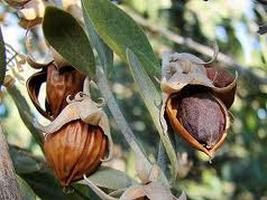 Jojoba seeds Jojoba seeds
When I decided to go natural, I knew I needed a good, pure oil. After some research jojoba became my oil of choice. Two key factors sold me on jojoba:
a) The fact that jojoba is the only oil whose molecular structure is similar to sebum (the oil that the scalp naturally produces) and b) It has a very long shelf life. The only oils I know to have longer are castor oil and coconut oil.[i] I shouldn’t have really cared about shelf life because as it turns out I go through my bottles pretty rapidly! Jojoba oil is derived from the seeds of evergreen jojoba shrubs (Simmondsia chinensis). It is native to Arizona, California and Mexico. 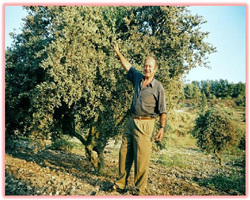 Jojoba evergreen shrub Jojoba evergreen shrub
It is one of the most nutrient rich and expensive botanical oils. Its benefits to hair include:[ii]
1. It is readily accepted by the scalp and does not mess with the scalp’s natural balance. This is because of its similar molecular structure to sebum (the scalp's natural oil). 2. It is reputed to have antibacterial properties. It soothes the scalp and can be used to treat dry scalp problems and dandruff. 3. It is composed of 98% monounsaturated fats and 2% saturated fats so it can penetrate the hair follicle and strengthen hair fibres from the inside. 4. Jojoba also hydrates hair from the inside of the hair shaft. So it works well as an agent for reducing hygral fatigue (the swelling and shrinking of hair as it it gets wet and dries that can weaken the hair fibre over time). 5. As a conditioner jojoba helps to add shine, elasticity and softness to hair. 6. Jojoba can be used to add volume to thinning hair. It adds volume and body to hair strands thereby giving an appearance of thickness. That said, note that if you have thin hair you can’t convert it to thick hair. That’s genetically predetermined. 7. You can mix jojoba oil with essential oils and massage the mixture into the scalp to stimulate blood flow to the scalp and encourage hair growth. I do this almost daily; jojoba is light and non-greasy. 8. Jojoba is an emollient – it fills in cracks that are on the surface of the hair cuticle, i.e. it helps to repair hair damaged by heat and styling. 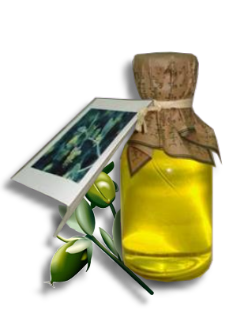
How can you use jojoba?
If you are using a shampoo that strips your hair, add a couple of tablespoons of jojoba oil to it. In this way your hair won’t get sucked (too) dry. Neno Natural’s Hair Growth Stimulator is composed of 50% jojoba and 50% grapeseed oil as the base. Chemical composition:[iii] Very high in monounsaturated fatty acids (98% of total fatty acids); also rich in Vitamin A, Vitamin B1, Vitamin B2, Vitamin B6, Vitamin E (very rich in), Myristic Acid (a saturated fatty acid), Plant Wax (similar to sebum). As you’re shopping for your jojoba note that unrefined jojoba is golden (you want this type); refined jojoba is clear and odourless. You might also like: THE best oil for natural hair. A mega summary! The supersonic benefits of argan oil on natural black hair 6 fabulous benefits of avocado oil on natural hair 8 Benefits of Castor oil for natural hair & a warning! 6 top benefits of coconut oil - a MUST for every natural hair regimen! 5 benefits of sweet almond oil on natural hair 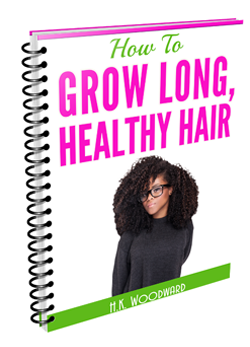
Get your FREE ebook on How To Grow Long, Healthy Natural Kinky or Curly Hair. References [i] Jojoba oil (wikipedia) [ii] Is jojoba oil good for thinning hair; Jojoba oil for dry hair; thejojobaoil.com; Jojoba benefits [iii] Jojoba carrier oil 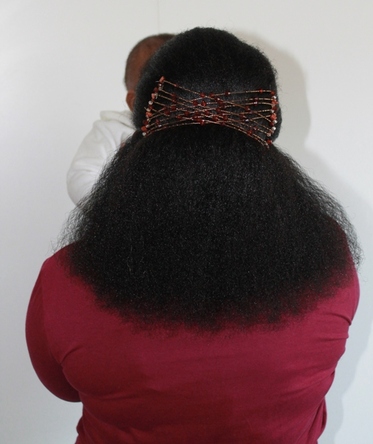 Click to see how Queen Ruth grows her super healthy natural hair Click to see how Queen Ruth grows her super healthy natural hair
Moisturizers come under an umbrella of many different names:
It is all the same thing! A water-based product that is applied to hair and does not need to be washed off. A moisturizer and a hair butter are very different products, however. A hair butter should not contain any water whereas a moisturizer does. If it's got water in it, it's not a hair butter, it's a moisturizer. A hair butter should be applied after a moisturizer to seal the moisture in for longer. Hair butters should not be applied to dry hair because the don't moisturize.
Overall, moisturizers fall into three distinct categories:
A mositurizer should do two things for you according to The Science of Black Hair:
The second function is performed better by following your moisturizer with a hair butter. If your moisturizer is not working get another one. Ideally, get a sample sized moisturizer if you haven't used it before because you might decide you don't like it after one use. 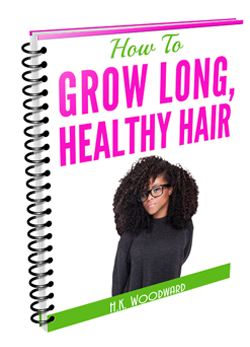
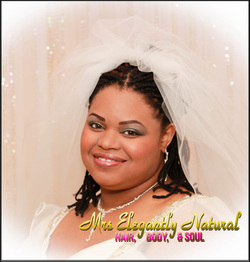 Click for Queen Marita's Hair Regimen Click for Queen Marita's Hair Regimen
First things first, a moisturizer and a leave-in conditioner are exactly the same thing. It is a water-based product designed to help soften and detangle hair.
For kinky and curly hair, a moisturizer is a must. I personally use my moisturizer daily when my hair is loose so it's actually used a lot more than my rinse-off conditioner. If my hair is in twists I use it every other day. A moisturizer (leave-in conditioner) can be applied to freshly washed hair or to dry hair. I find it easier to spritz dry hair with a little water first and then apply the moisturizer. This has the added benefit of stretching the moisturizer further and therefore helping it last longer. Application To Very Dry Hair If my hair is super dry and perhaps matted I normally spritz it with water first, apply the moisturizer then cover my head in a shower cap whilst I shower and get ready. The reason for this is to soften the hair even further - it works every time. I think this is a lot better than sleeping with a shower cap over your head for the whole night long. So, How Do Leave-in Conditioners (a.k.a. Moisturizers) Actually Work on Hair? Hair is negatively charged. This means that, positively charged ingredients are needed in order to get them to attach to your hair - remember, opposites attract. Just as with a rinse-off conditioner most of a leave-in conditioner contains positively charged ingredients called "cationic polymers" and "cationic quaternary compounds". The positively charged stuff in your leave-in conditioner gets attracted to your negatively charged hair and keeps it softer and moisturized for a period of time. The positively charged ingredients in moisturizers:
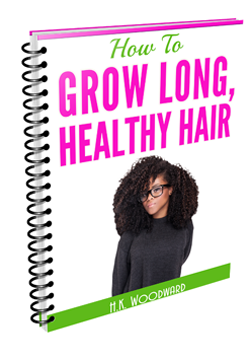
Get your FREE ebook on How To Grow Long, Healthy Natural Kinky or Curly Hair. You might also like:
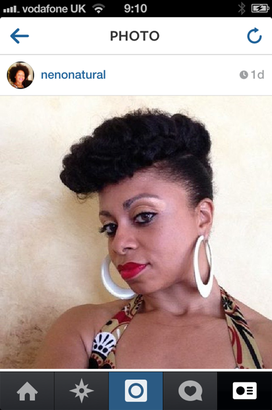
A proper hair butter does not contain any water-based products. It is designed to seal hair after the hair has been moisturized.
A moisturizer is a water-based product. A leave-in conditioner is just another name for a hair moisturizer. If you look under ingredients you will see "water" or "aqua" as the main ingredient. Water/aqua is an ingredient that you will not find in a hair butter. If a product calls itself a hair butter and you see aqua or water, it plain and simply is not a hair butter. Under both the LOC and LCO method used to moisturize black hair:
I teach how to make whipped hair butters and moisturizer in my Hair Product Academy. 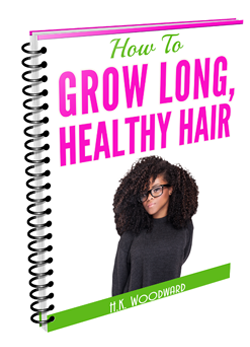
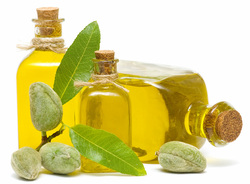
I should have written a very specific blog on this issue ages ago!
I sometimes get emails asking me, "Heather, I've tried this oil and that oil but my hair simply doesn't get soft and moisturized - why?!" The answer is an oil won't soften and moisturize your hair because although oils do have a moisturizing quality to them, this function is very incomplete without water. Why don't oils moisturize hair? Because moisture means water and oils and water do not mix. This is why in the LCO and LOC methods of moisturizing hair the water is always first:
Even when you have dry skin: have you noticed that when you rub oil directly onto the dry skin it doesn't look as good as when you shower first and then oil yourself up? In fact, if you don't want to bath/shower, rubbing a wet towel over dry skin and then oiling it up hydrates the skin better than direct oil application without the moisture first. 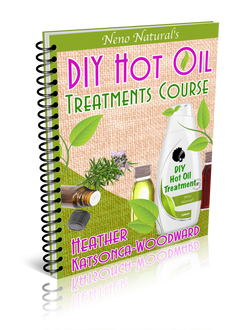
So, how should you use oils?
As I mentioned in THE Best Oil For Natural Hair. A Mega Summary! you can use oils for:
I also use oils in many different ways as seen in Neno Natural's DIY Hair Recipes. 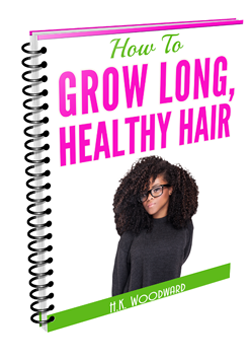
Get your FREE ebook on How To Grow Long, Healthy Natural Kinky or Curly Hair. 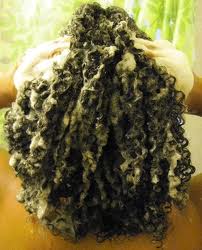
I know some people do a rinse before shampooing but really it is much more effective to do after conditioning but before applying a leave-in conditioner.
Why? The reason is simple: both lemon and ACV are acidic. This means that they cause the cuticle layer to contract and flatten. A flattened cuticle layer is closed to the entry of moisture and other products so if you plan on doing a deep condition after the ACV or lemon rinse, you're working against it. For an effective deep condition you want the cuticle to be more open and to ensure this this you shouldn't be rinsing with something acidic just beforehand. Once you've done your deep condition and rinsed off the conditioner the ACV or lemon rinse (or whatever other acidic rinse you choose) will close the cuticle layer thereby:
You can further rinse the ACV or lemon rinse with cold water to get any smell off. As the acidic rinse has already done its job of sealing the cuticle layer this follow-on cold water rinse is NOT counter productive. 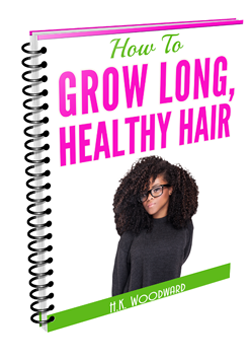
|
I now blog about wealth creation - so if you have any money questions meet me there, you can do all sorts of cool things like leave me a voicemail.
By Heather Katsonga-Woodward
I was a natural hair blogger and mixtress living between London & Chicago from 2012 to 2017. I always thought I was 4C but some say 4B; images below - you decide! Heather xx Categories
All
Archives
November 2016
|

